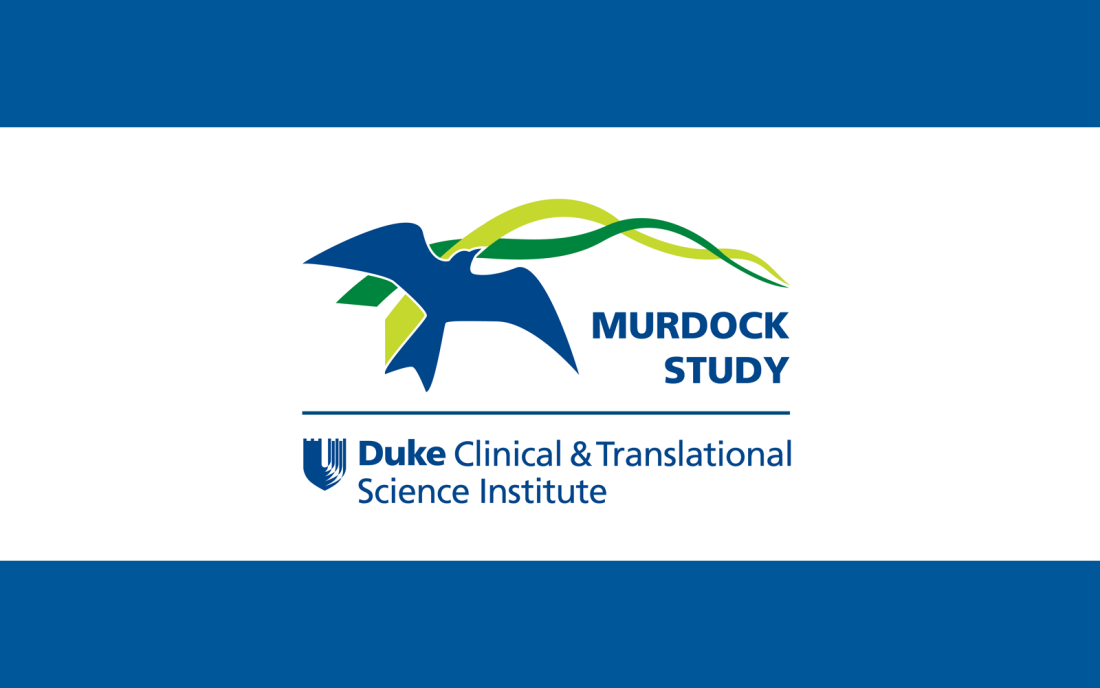
Duke’s MURDOCK Study Launches COVID-19 Research in Cabarrus County
Duke’s MURDOCK Study has launched a COVID-19 research project to follow the health of hundreds of North Carolina volunteers for several months. The study will also test a sub-group for COVID-19 infection and potential immunity to the novel coronavirus that causes the disease.
The MURDOCK Cabarrus County COVID-19 Prevalence and Immunity (C3PI) Study is a partnership with the Duke University School of Medicine and North Carolina Department of Health and Human Services to understand the community prevalence of COVID-19 and to monitor the disease over time. Enrollment began June 9.
Study participants complete online surveys about their health every two weeks. This summer, a smaller cohort will do at-home nasal swabs to test for COVID-19 infection and give blood samples to look for antibodies that indicate prior infection and could indicate immunity.

Volunteers for the project are already enrolled in the MURDOCK Study, a landmark community-based health research initiative in Cabarrus County. Founded in 2008, the MURDOCK Study has more than 12,500 participants and is based at the Duke Clinical and Translational Science Institute (CTSI) office at the North Carolina Research Campus (NCRC) in Kannapolis, where a team of Duke employees launched the COVID-19 study in a matter of weeks.
“We can quickly and efficiently engage the MURDOCK Study cohort and our team in Kannapolis to ask and answer important scientific questions, as in the case of COVID-19,” said L. Kristin Newby, M.D., principal investigator for the MURDOCK C3PI Study and faculty director for Duke CTSI’s Translational Population Health Research group. “Our participants are highly committed to helping move research forward and to helping their community. The MURDOCK Study is uniquely suited to respond, recruit, and generate data during this kind of public health emergency.”
The study will follow the health and well-being of volunteers for at least six months and examine how the COVID-19 pandemic has affected them and their households. Researchers are especially interested in learning more about the behaviors of both symptomatic and asymptomatic people over time.
“Understanding the impact of disease across the state and among our most vulnerable populations is essential to effectively target public health interventions,” said Chris Woods, M.D., co-principal investigator for the MURDOCK C3PI Study and co-director for Duke’s Hubert-Yeargan Center for Global Health.
“This partnership between the longstanding MURDOCK program and NCDHHS will provide some of those necessary data regarding infection rate over time,” Woods said. “This is also a great model for additional public-private collaborations to reduce disparities in health.”
The MURDOCK C3PI Study is part of a statewide effort to learn more about what percentage of people have no symptoms and better understand the true number of COVID-19 infections in the state. The North Carolina Department of Health and Human Services is also collaborating with the University of North Carolina at Chapel Hill and East Carolina University on similar research to assess COVID-19 prevalence in Chatham and Pitt counties.
ABOUT THE MURDOCK STUDY
The MURDOCK Study is Duke’s landmark longitudinal translational research study working to reclassify health and disease through advanced scientific technologies, expertise from Duke researchers, and close collaboration with a strong network of community partners at NCRC. One of the largest and most unique studies of its kind in the world, the MURDOCK Study ultimately aims to identify linkages across major diseases and disorders to help defeat some of today’s leading causes of illness and death. MURDOCK is an acronym that stands for the Measurement to Understand Reclassification of Disease Of Cabarrus and Kannapolis. For more information, visit duketranspop.org.
ABOUT DUKE CTSI
The Duke Clinical and Translational Science Institute (CTSI) catalyzes and accelerates the innovation and translation of scientific discoveries into health benefits for patients and communities through collaborative research. Our NIH Clinical and Translational Science Award funding enables us to offer programs, project management and navigator services, and data sharing and informatics resources that provide essential support to move ideas from the laboratory through early-phase clinical trials, and facilitate education for current and future translational medicine researchers. For more information, visit ctsi.duke.edu.
Media contact:
Emily Ford
704-642-2208
emily.ford@duke.edu
COVID-19, COVID-19 Research, Duke CTSI, Duke University, MURDOCK Study, NC Research Campus, NCRC, North Carolina Research Campus
